“The God Pan is doing his work, creating mayhem and forcing us into contact with a wildness we won’t forget….Pan who brings unbridled change without discernible order or structure. Pandemic, Panic, Pandemonium. This virus.” ~ Elaine Mansfield
My friend Elaine Mansfield is an author and blogger. Her latest post, “The Greek God Pan, Pandemic, & Nature’s Healing Balm,” is filled with warm wisdom. She thinks of Pan as the shadow side of the Green Man, a gentle greening life force.
Yet, in another sense, Pan, which means “all” in Greek, represents all nature, both the wild and tame, the sacred and profane, the birthing, dying and ecstasy and suffering in between. In this sense, he’s an all-inclusive nature god, a masculine counterpart to Gaia, Earth Mother, Mother Nature.
Pan makes a memorable appearance In one of the finest animal fantasies for children ever written, The Wind in the Willows by Kenneth Grahame (1908). In this classic, the adventures of talking animals highlight the joy and sacred meaning to be found in life and the seasons of nature. It begins with Mole who emerges from his underground home. With a spirit of divine disconnect and longing, he interrupts his spring cleaning to leave his lowly little house and rush out to enjoy the wonders of nature “without even waiting to put on his coat.” p. 11
In his ramblings, Mole discovers a river.
“Never in his life had he seen a river before — this sleek, sinuous, full-bodied animal, chasing and chuckling, gripping things with a gurgle and leaving them with a laugh, to fling itself on fresh playmates that shook themselves free, and were caught and held again. All was a-shake and a-shiver — glints and gems and sparkles, rustle and swirl, chatter and bubble. The Mole was bewitched, enchanted, fascinated.” p.17
Mole, Rat, Mr. Toad, and Mr. Badger have many wild adventures, but one scene in the slower, more lyrical chapter, “The Piper at the Gates of Dawn,” is the heart of this story. Mole and Rat are on a night-time search for Otter’s missing son, Portly, when they are drawn to a haunting melody carried on the wind. It is the sound of pipes played by their god.
“Suddenly, the Mole felt a great Awe fall upon him, an awe that turned his muscles to water, bowed his head, and rooted his feet to the ground. It was no panic terror — indeed he felt wonderfully at peace and happy — but it was an awe that smote and held him and, without seeing, he knew it could only mean that some august Presence was very, very near. With difficulty he turned to look for his friend, and saw him at his side cowed, stricken, and trembling violently. And still there was utter silence in the populous bird-haunted branches around them; and still the light grew and grew.” p. 121.
It is Pan. At his feet lies Portly, fast asleep.
Pan, the wild god of chaos and unbridled sexuality is also a gentle, motherly protector of vulnerable children. How strange. Humans have a very long history of associating Nature — with its cyclical seasons, the return of moles, mysterious secrets in dark forests, riotous rivers, haunting wind, beautiful music and sparkling light — primarily with Goddess.
But masculinity, symbolized in the mythical forms of Pan, the Green Man, and Dionysus, is also associated with the numinous power of nature. Dionysus is the God of the vine, wine-making, the grape harvest, religious ecstasy, and fertility, as well as animals like dolphins, bulls, panthers, and goats. So is nature masculine or feminine? God or Goddess? What is the meaning of this paradox? How do we reconcile it?
The answer lies at our core. The source of nature’s numinous power is the ongoing, ever-present fertility of life. Life, a merging of opposites, created by the sacred union of masculinity and femininity.
I believe the message of the coronavirus is that we have lost touch with our essence. We are life. We are nature. Not just rigid intellectual machines of rationality, objectivity, reason, and logic, but also organisms that feel, intuit, imagine, change, experience awe. We are wild and tame, terrifyingly powerful and lovingly tender. As part of nature, we too hold every paradox together in ourselves: feminine and masculine, sacred and profane, life and death. To live a full life, we must integrate both.
“It is the denial of death that is partially responsible for people living empty, purposeless lives; for when you live as if you’ll live forever, it becomes too easy to postpone the things you know that you must do.” ~Elizabeth Kubler-Ross
“I rebel against death, yet I know that it is how I respond to death’s inevitability that is going to make me less or more fully alive.” ~Madeleine L’Engle
Life is an ongoing reality within and around us. But so is death. No one is immune to either, because this is the stuff we are made of. We die a little every day we are alive, yet we are alive. The answer to the pandemonium raging in us and our world lies in full acceptance of our true, mysterious nature.
You are nature. You are alive. What are the things you know you must do to feel your life more fully? May this song by Kris Kristofferson help you find the answer.
Image Credits: Pan, Google images, and The Wind in the Willows, source unknown.
Jean Raffa’s The Bridge to Wholeness and Dream Theatres of the Soul are at Amazon. E-book versions are also at Kobo, Barnes And Noble and Smashwords. Healing the Sacred Divide can be found at Amazon and Larson Publications, Inc. Watch for her new book, The Soul’s Twins, to be launched by Schiffer Publishing this October.
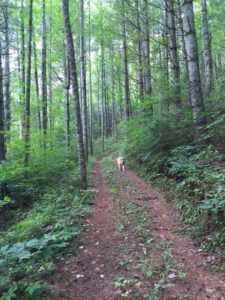
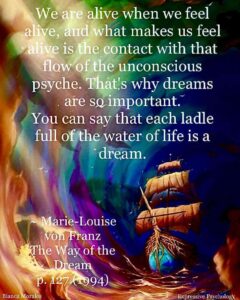
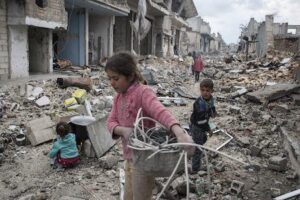
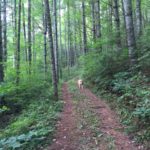
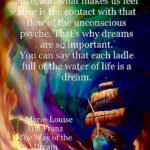
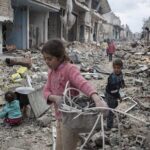
15 Responses
Hi Jean, As always I found your reflections interesting , and feel that it is important to recognise the co-existence of life and death, and the fact that it is essential to pay regard to the forces beyond humanity that are on the move. Among the feelings of utter sadness at the suffering so many people are experiencing I have also been feeling increasing anger at the world we have created and want to shout out “This is what it is like to be vulnerable.” and “This is the world we have created.”. These feelings came out in an Easter poem which I put to one side because It seemed so inappropriate to express these thoughts at times of such vulnerability and suffering. I hope that when this is all over we will begin to re-evaluate the way we live and acknowledge the responsibility for what we have done. I hope you stay well and safe and look forward to reading your new book when it comes out. Best Wishes Gary
Pandemic Easter reflection 2020
Did you never notice
the millions starving
the blank encrusted eyes
the swollen bellies
of dying children ?
Did you never notice
the families from distant lands
fleeing from homes
flattened by bombs
risking all on flimsy
leaking boats
Do you not remember
the tiny hands and feet
of the little boy
washed up lifeless
on a foreign beach
Did you never notice,
the belching chimneys
the rainforests torn from their root
the polluted seas
poisoned by us
the mass extictions
the precious creature
lost for ever.
Did you never stop to think of
the destruction that follows
our footsteps
Did you never stop to look
at all the heartless leaders
preaching greed
and endless vanities.
Will you ever hear the cry
of the Dying Earth
Thank you for sharing your thoughts, reflections and Easter poem Gary. I really enjoyed reading your powerful, poetic response. Blessings always, Deborah.
Dear Gary,
Thank you for sharing your deeply moving poem. I hear your anger and anguish. I feel them too, along with a deep sadness that seems to have no bottom or end. As I read your words I found myself substituting each “you” for an “I”. It was profoundly humbling. I know that I must share the burden of blame for the condition the world is in.
And I’m trying to change. I hear the cry of the dying Earth every time I drink water out of a plastic bottle. So we are using a filtration system for our tap water which I fear may be somewhat compromised. I hear the cry of the dying Earth every time I see a felled tree or use a paper towel that was made from one. So I’ve pulled out my old kitchen towels which can be re-used indefinitely. These are such tiny changes. They won’t make a dent in the big picture, but doing what I can every day lessens the load of my guilt. I have hope that if more of us change the “you’s” to “I’s,” together we can make a difference.
My best wishes and blessings, Jeanie
Dear Jeanie,
I love that you quoted Elaine Mansfield aka Wise Woman, Teacher and Soul-Sister to many! I could sit and listen to her generous, mythological tales and the warm, nurturing beat of her heart for hours. Thank you. That you explore all sides of Pan is perceptive and so insightful!
How exquisite and wonderful your explorations of Wind in the Willows are! I had forgotten that chapter where Pan visits. I love how you describe him as a gentle, motherly protector of vulnerable children which reminds us how imperative the masculine aspect is in nature too.
In a nutshell it seems that our individual and collective task at this moment seems to be to not only blend the masculine and feminine aspects together but find our own true balance. A task which means looking in, not looking out, something I’m learning on my Animus Diet.
Your rich post makes me think more about how the feminine and masculine are presenting themselves with the coronavirus. How as I explore in my poem, “The Poet and the Plague” the physical symptoms of this pandemic are strangely mirroring our current world climate catastrophe.
That’s such a beautiful song and lyrics by Kris Kristofferson. Thanks for uploading the video! Love is the way, indeed.
Love and light, Deborah
Dear Deborah,
Yes. I have loved your writings about your Animus Diet and agree that our collective task is not only to blend our masculine and feminine aspects together, but to do it in a natural way that brings us to our true balance. Each of us has our own point on every continuum between every pair of opposites. And it doesn’t matter a whit where we are on any one continuum. All that matters is that it is the place where our true soul is meant to live.
Of course, from the moment of birth, the world tells us otherwise, forcing us into molds that are not of our own choosing. “Do this. Be that. Don’t do this or say that.” If somehow a great cosmic fairy were to wave a wand over our planet and erase every painful memory from every living human, returning us to the innocent and loving creatures we were born to be, the world would completely change within a generation. But to be totally realistic, within a few generations, our shadows would awaken and begin to stir things up again!
My utopian fantasies of a Garden of Eden are nothing more than that. Since I can no longer expect to find unconditional salvation and love from without, I must look within. Adam and Eve must awaken themselves from their own unconsciousness and bear the consequences of suffering. This is the story we are born to live.
It helps me so much to meet people here who are trying to live that story with authenticity and integrity. Thank you for being one of those people.
I invite my readers to check out your exquisite poem, The Poet and the Plague, here: http://theliberatedsheep.com/the-poet-and-the-plague/#more-3009
Love and blessings,
Jeanie
Thank you so much Jeanie for your truly wonderful reply and for so generously including a link to my coronavirus poem. A thousand blessings! xx
I’m swooning – at KK – I always will. How strongly your message comes through Jeanie of the necessity of the masculine & feminine energies coming together each working and blending for the greater good in sacred union. By no means exclusive to each other as sometimes erroneously thought. Like life and death. Each a part of each other, they are not apart. I’ve got Wind in the Willows, illustrated by Arthur Rackham and I’ve pulled it out. How beautiful are those excerpts. Pan, so caring and Portly being found at his feet. They heard the august call indeed …
Pan as in panorama – Pandora’s Box maybe also. There are a few versions of what is found at the bottom of Pandora’s Box, one being that Hope is at the bottom and helps man to withstand all the ‘evils’ in the box. The other version is that Hope is at the bottom but this is cruel as it prolongs man’s suffering … I prefer the the first version.
Thank you Jeanie a truly lovely post. Re-reading Elaine’s words is a perfect introduction. Hope all going very well for you and family 🙂 xx
I swoon every time I hear KK, but especially at that song. It speaks so eloquently to the deep sadness and disappointment my disillusioned inner idealist has felt ever since I took my 8th grade civics class and discovered how flawed the U.S. presidents were.
I think we all start our lives expecting the best from our leaders. How can they forget, or worse, remember but ignore, the significance of each and every speck of life on this planet? Thank goodness for the spirit persons, artists, and poets who tell the truths nobody wants to face. I count KK among them.
How could I forget Pandora? I definitely subscribe to the first version of her story. I don’t know what I’d do without Hope.I don’t expect my suffering to ever go away, but I need to hope and trust that meaning can be found from it. I think it comes down to noticing and finding meaning in this moment in which I’m doing my best to be honest, authentic, and loving. And the next. And the next.
All is going as well as one can expect.
With love, Jeanie
p.s. I enjoyed gardenegary’s reflections and his powerful poem
Thank you Jean for posting this! I believe this is an incredible opportunity to seize the messages from great works of art, literature, music, philosophy, myths…and more…and glean greater understanding of how to transcend this pandemic individually and collectively. I feel a personal responsibility to humankind and Mother Earth/Father Sky to do the work. To gardernergary, I believe we need to share the honesty and truth of our feelings and visions even if from a place of darkness – also – look at the reminder and emotional documentation Picasso has left behind with “Guernica”. Let’s hope there are artful works of inspiration, ascension, transcending AND artful works that move us to action from our hopes and angers for a better world. Thank you for your poem.
Hi Jo,
Thank you for writing. I am very pleased to welcome another artist to Matrignosis. For readers who don’t know Jo’s wonderful work, I invite you to visit her website at https://www.josinclairart.com.
I agree with your response to gardenergary about the value of honestly sharing our feelings and visions, even if they come from a place of darkness. And I also thought about Picasso’s Guernica when I was writing to Susan about my gratitude to the spirit persons, artists, and poets who describe realities we don’t want to face.
Creating beauty out of chaos is crucial to our individual and social welfare. It’s the alchemical opus of turning lead into gold. I believe we’re all meant to do this with our lives in our own way. Gary’s poem strengthened my determination to take more action for the world’s welfare in my daily life. I’m sure it did for others too.
I am grateful to everyone who visited me here. Your presence is very reassuring in this dark time.
Warm blessings to you,
Jeanie
Thanks for broadening the Pan perspective, Jeanie. I was interested in the chaos of Pan in my piece, but he’s so much more. I love the way you’ve presented him and the stories you’ve told. My introduction to Pan came in 1990 from the myth of Eros and Psyche where he’s a wise kind-hearted old man, much more like the Pan you write about. (I can’t swoon over music, unfortunately, except in dreams and memory, but I can swoon about mythology.) So, I”ll add another story which you know.
In ‘The Golden Ass’ by Apulius, Psyche spills hot lamp oil on her lover Eros (Cupid), and is caught breaking the rule not to look at him. Eros soars away and is gone. Psyche throws herself into the river to commit suicide, but the “kindly river” washes her ashore. Pan, the goat-legged country god, is sitting near by with the mountain nymph Echo. He calls brokenhearted Psyche to his side and says he can see she’s desperately in love. He tells her to stop trying to do anything violent, especially commit suicide, but instead give herself to Cupid, “the greatest of us Gods.” Psyche takes his advice and completes 4 impossible labors, traveling from heaven to hell to reunite with her love Eros. And that initiation happened because of Pan’s protective grandfatherly wisdom. (We won’t get into what he was doing with Echo.)
Covid-19 is quite a teacher. I’m grateful for a governor who soothes and guides toward a patient, measured response (grandfatherly?). Andrew Cuomo who wasn’t always the most popular of politicians also banned fracking in New York State some years ago. Another wise decision. I was involved with the years of demonstrations about that and his first stance was pro-fracking, but a wise politician is willing to consider facts and change his mind. He’s also learning from covid-19. We’ve had to take the teachings of nature seriously in New York State. Everyone around here (250 miles from the city) is keeping careful protective rules. Thanks for another great post, Jeanie.
Thank you, Elaine. I loved your post about Pan. And thank you for sharing the story of Pan’s role in the Psyche and Eros myth. It seems he was a real champion and lover, not only of all nature, (and all women), but all forms of life, especially the young and vulnerable.
Grandfatherly (and fatherly) wisdom is something I miss. I don’t seem to see as much of it on the media as I used to. (Maybe I’m looking in the wrong places.) I think of Mr. Rogers, Captain Kangaroo, Attitus Finch, Walter Cronkite….all the kind, caring, gentle and beloved elder males who I saw and read about when I was growing up. Although I agree with you about Andrew Cuomo; he is definitely moving into that category as far as I’m concerned.
It sounds like New York is definitely growing in wisdom, if that can be said about a state.:-) I hope to see more of that here soon, but I’m not holding my breath.
But we do seem to be learning a lot of good things from Covid 19. It’s happening. Stay conscious. Stay well. Jeanie
Boy, did I ever need this today. Thank you, Jean, for reminding us of who we are and allowing Nature to show us the way. Kris Kristofferson’s song brought much-needed tears to my eyes. Yes, “Life is the question and Life is the answer.” A healing paradox for these chaotic times.
Thank you so much for stopping by, Carolyn. I appreciate knowing that this was helpful to you. In times like this it’s helpful to remind ourselves, “Yes, this is happening. But here I am, alive. Breathing. Feeling. The sun came up this morning, and the moon will rise tonight. Let me appreciate this precious moment, this hour, this day.” With love and blessings, Jeanie